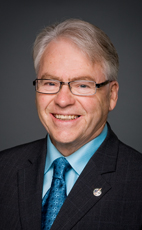Mr. Speaker, rarely have I had the opportunity to stand in this place and celebrate a victory for reason and science under this regressive government, but that is exactly what I have the honour of doing here tonight.
Just over a month ago, with its interim, life-support agreement set to expire at midnight that day, I stood here and asked if the Conservatives were again attempting to finish off the Experimental Lakes Area.
Operating since the late 1960s, the chain of 58 lakes in northwestern Ontario that make up the ELA has been responsible for breakthrough science on acid rain, eutrophication, mercury contamination and climate change. It has deepened our understanding of the impacts of human activity on freshwater ecosystems and the boreal forest.
Well, I am relieved to report that it is still alive, albeit needing intensive care for quite a while yet.
The people of northwestern Ontario, along with the rest of Canada and the world, will continue to benefit from the science done at this remarkable facility. It has been saved by the efforts of scientists from around the world, citizens from across Canada, the minority Government of Ontario and the superhuman efforts of one special young scientist.
Dr. Diane Orihel has led this charge from the beginning. She deserves immense credit and respect for keeping the ELA alive.
Dr. Orihel's work stands as a testament to what one informed, passionate and determined person can achieve. All Canadians who believe in science owe her a debt of gratitude.
As she wrote in The Globe and Mail, on April 1:
This is potentially an exciting new chapter in the history of the ELA. Inhibited by years of abuse and neglect under successive federal governments, the ELA could finally realize its great potential.
However, it should never have come to this. We are grateful to the IISD for taking over operations at ELA.
Since those Conservatives came to hold 100% of the power in 2011, with only 39% of the vote, literally thousands of science jobs have been eliminated, with thousands more pending on the chopping block.
The cuts to scientific programs and research facilities are too long to list tonight, although the blog called, “The Canadian War on Science: A Long, Unexaggerated, Devastating Chronological Indictment”, has done a great job of bearing witness.
When that administration is finally run out of Ottawa in 18 months, we will begin the job of fixing the mess the Conservatives have left behind: environmental laws will have to be rewritten, the power of the PMO reined in, and a balanced and sustainable 21st century economy created.
Scientific evidence, consultation with Canadians and respect for science must be brought back into policy-making.The Conservatives' most lasting legacy may well be the destruction of federal scientific capacity. Respected publications like The Economist, The New York Times, and Nature are all criticizing our administration for muzzling, cutting and outright eliminating what were once world-leading science programs.
It could take a generation to recruit, train, hire and otherwise reacquire the scientific expertise that the current Conservative administration has so foolishly discarded, and this is a tragedy.
When economic competitiveness in the 21st century depends on leading the way with scientific and technological expertise, how will those Conservative members explain to their constituents and to all Canadians why and how this administration has set Canada's scientific and economic competitiveness back a full generation?

